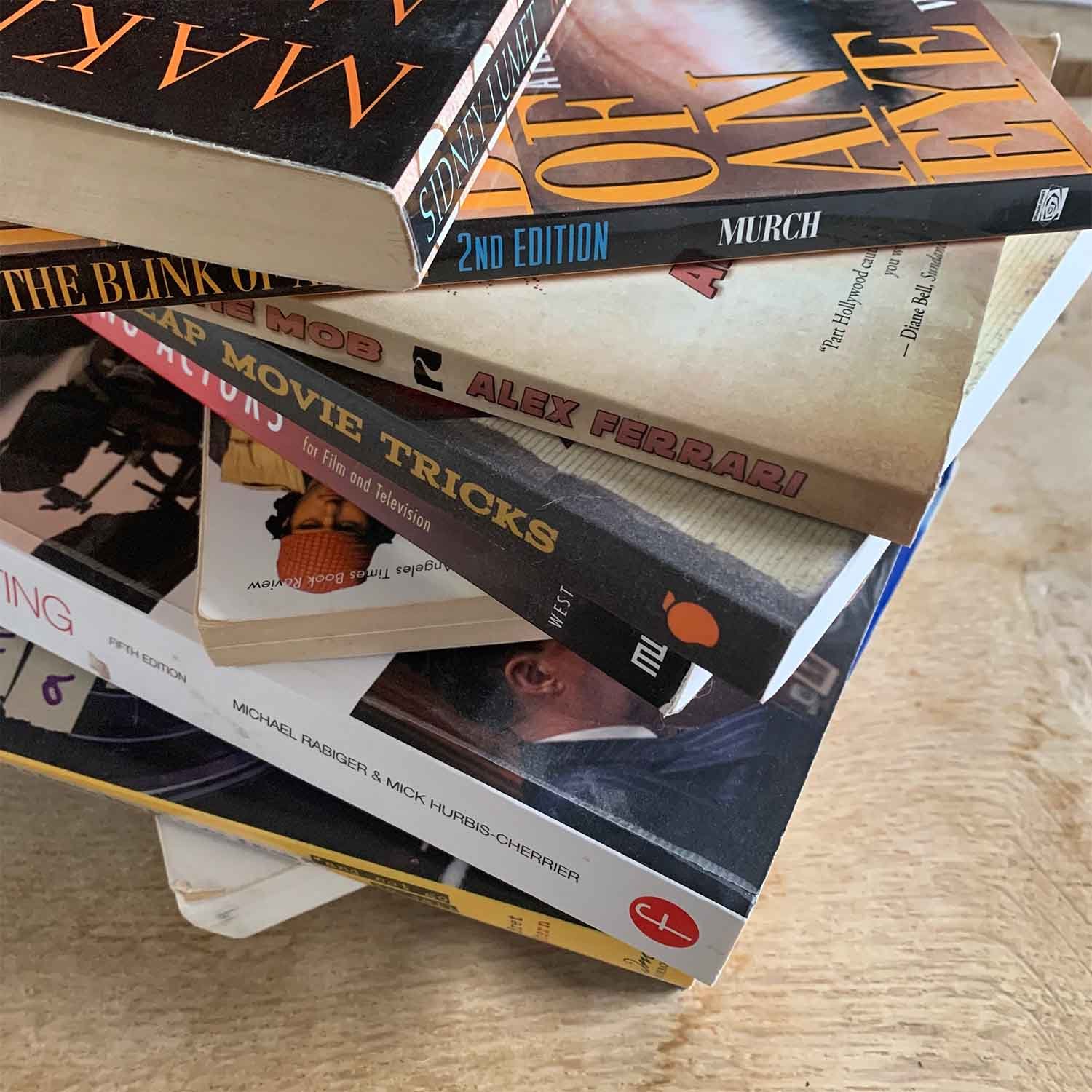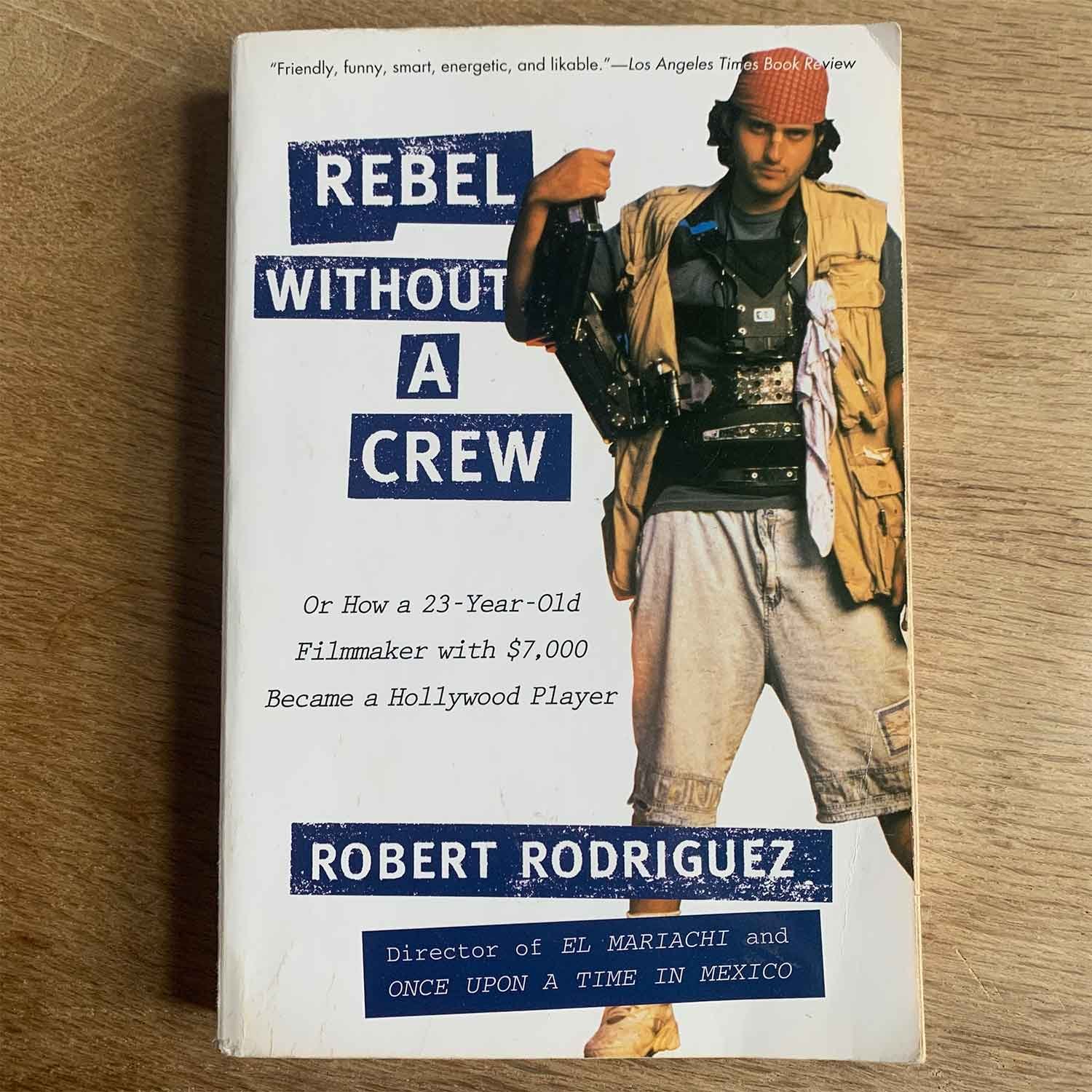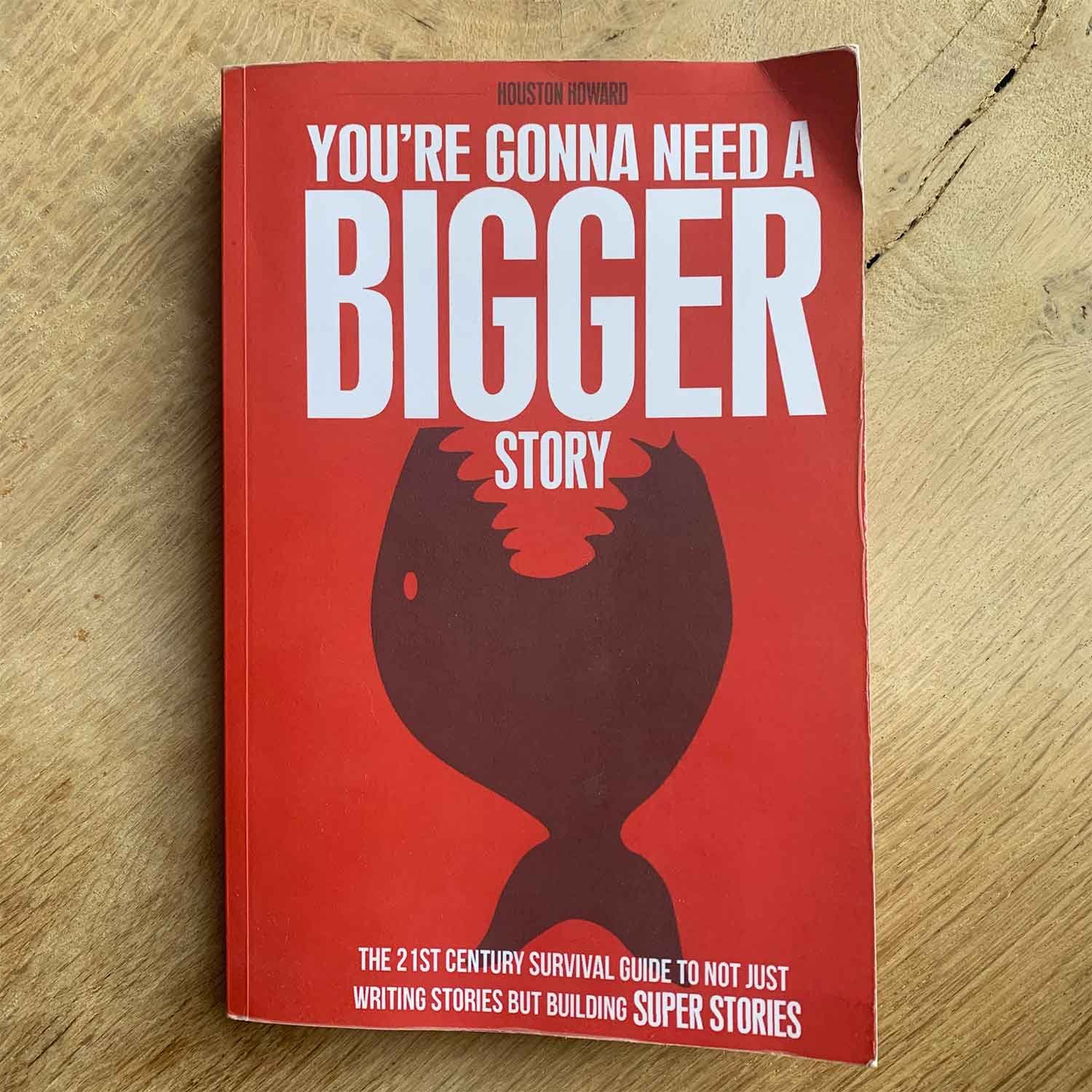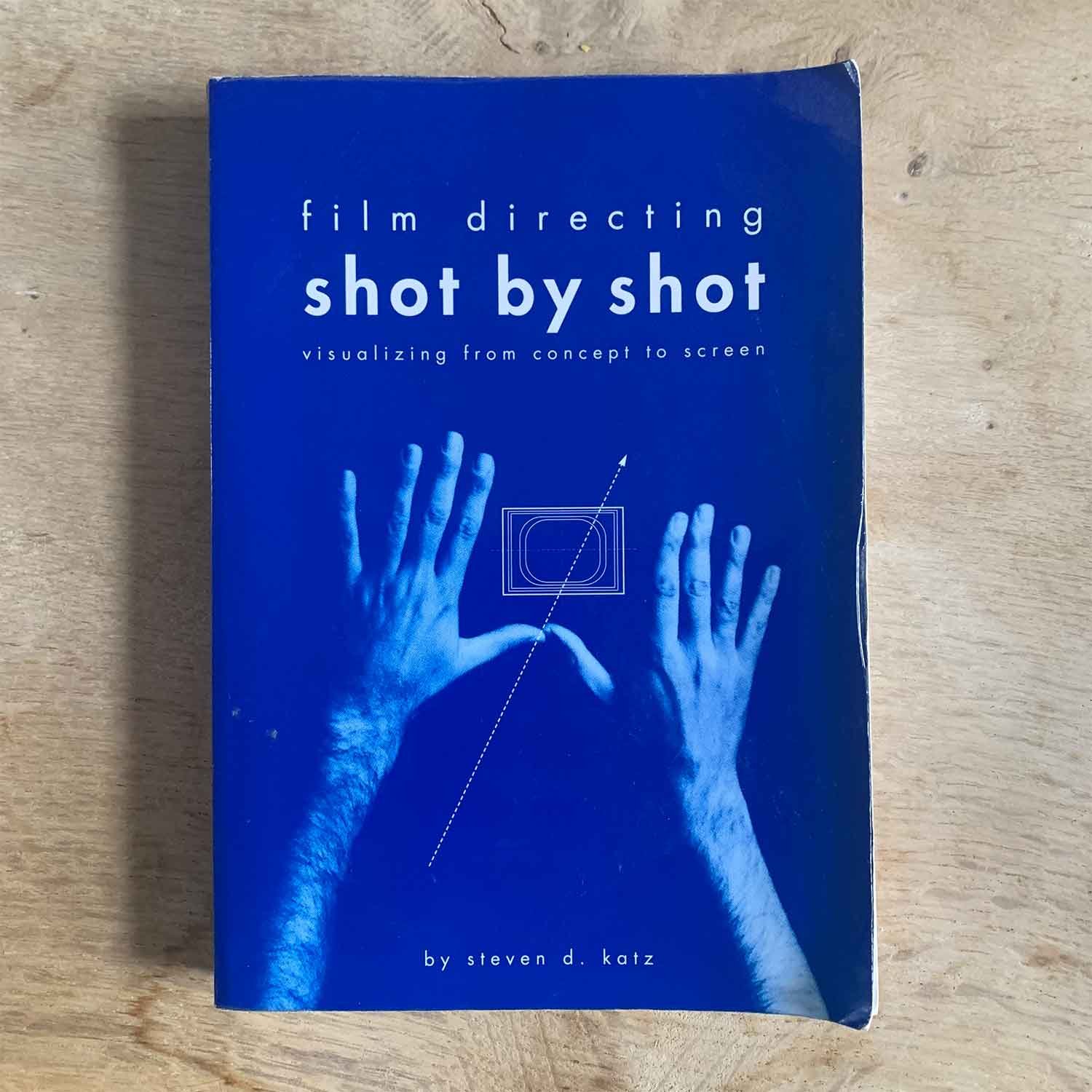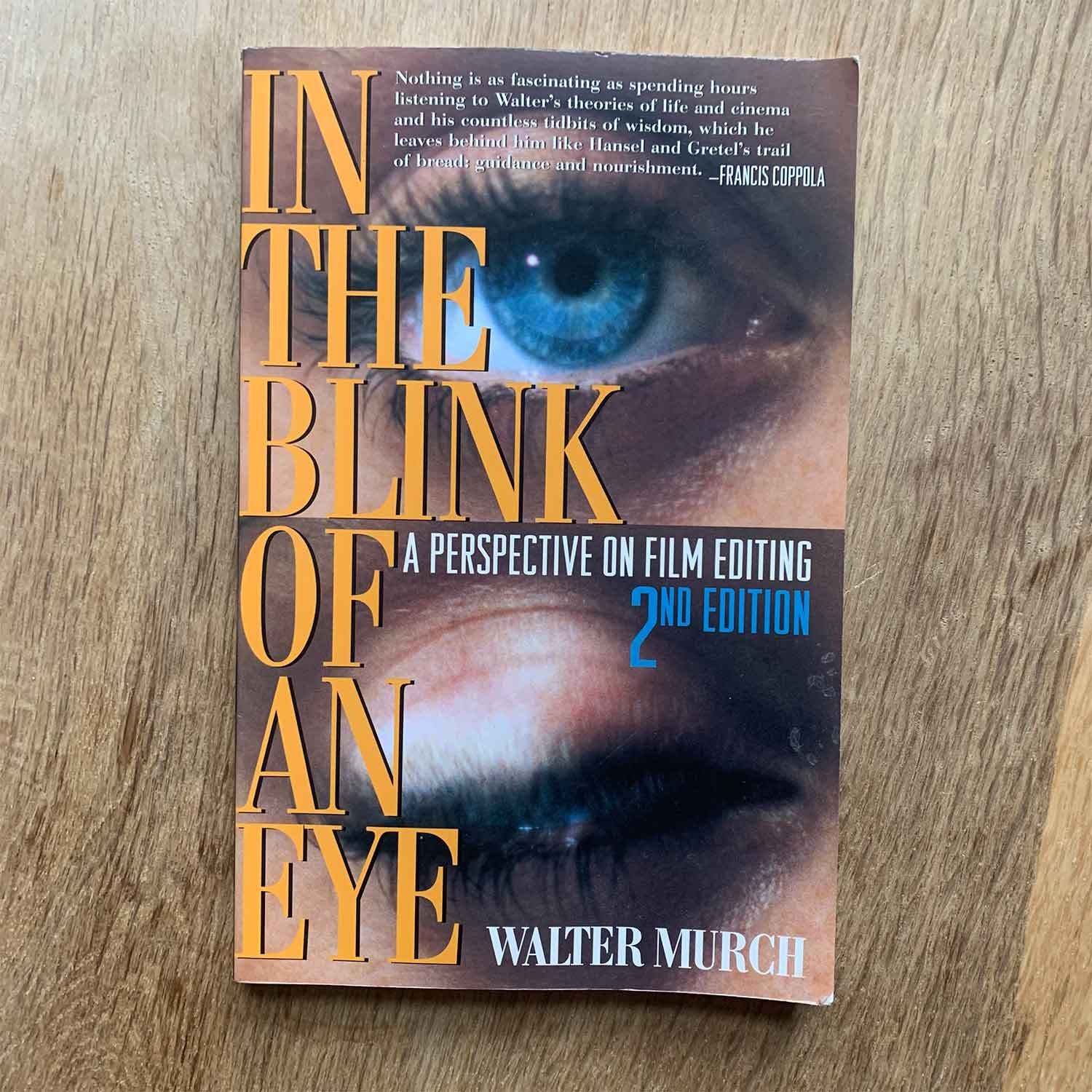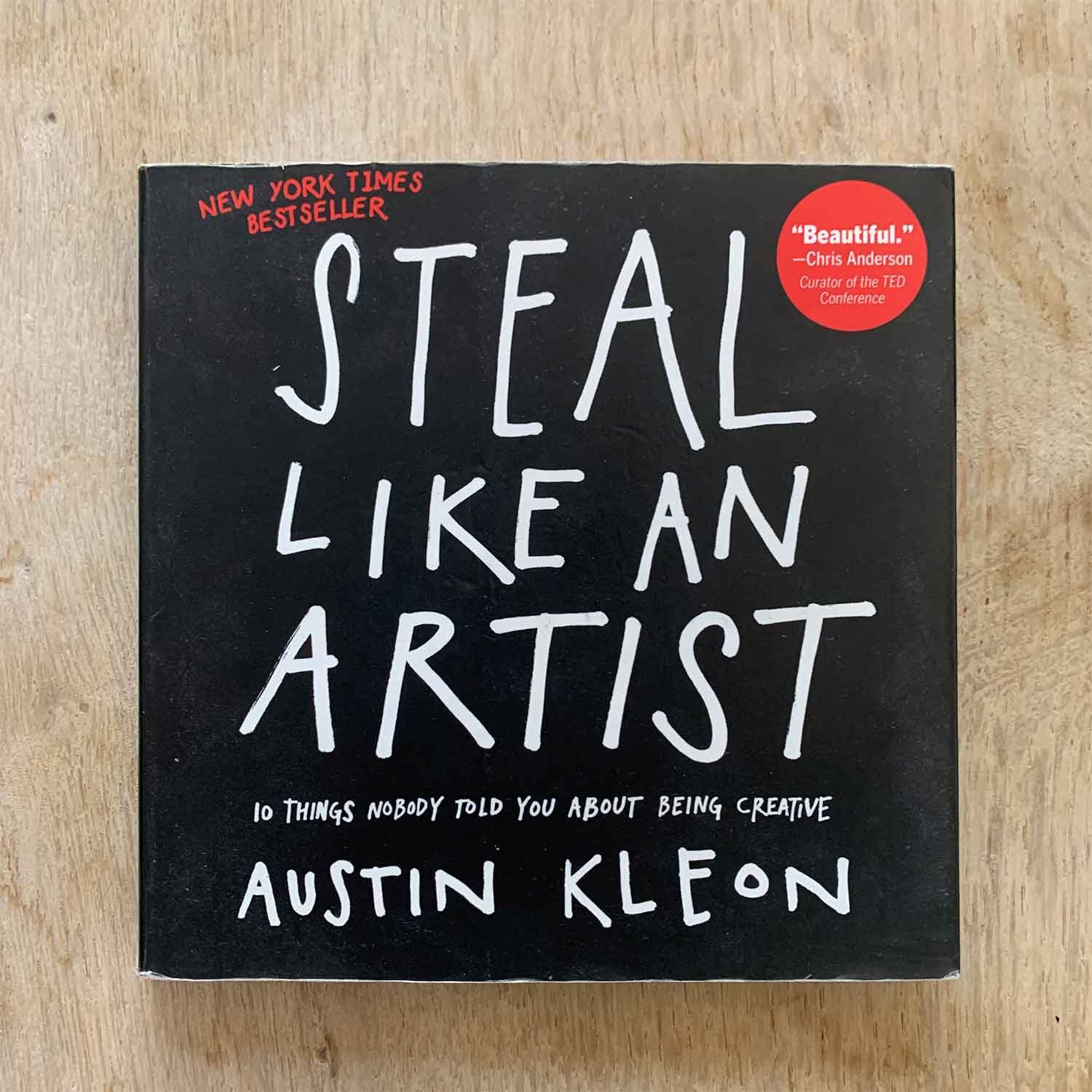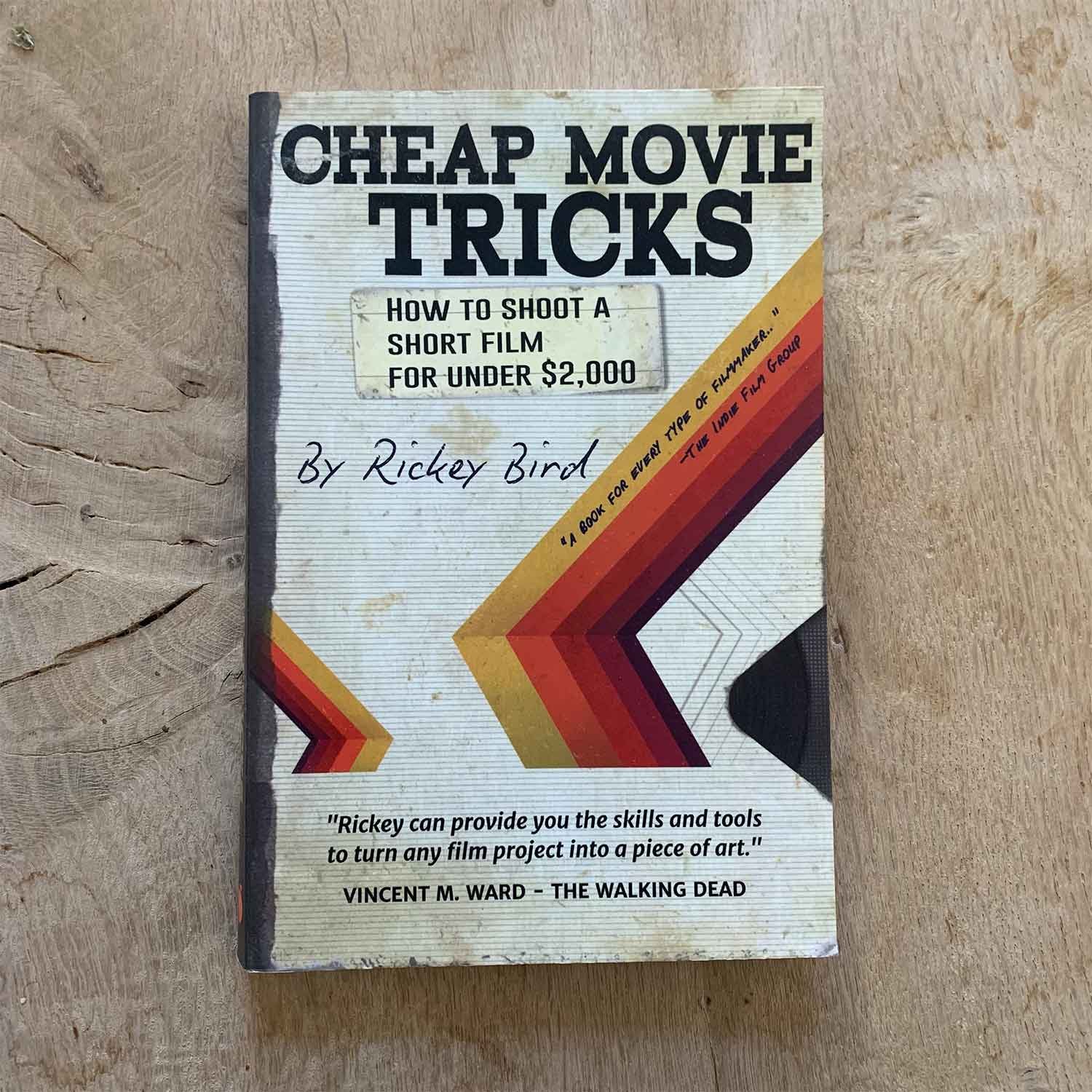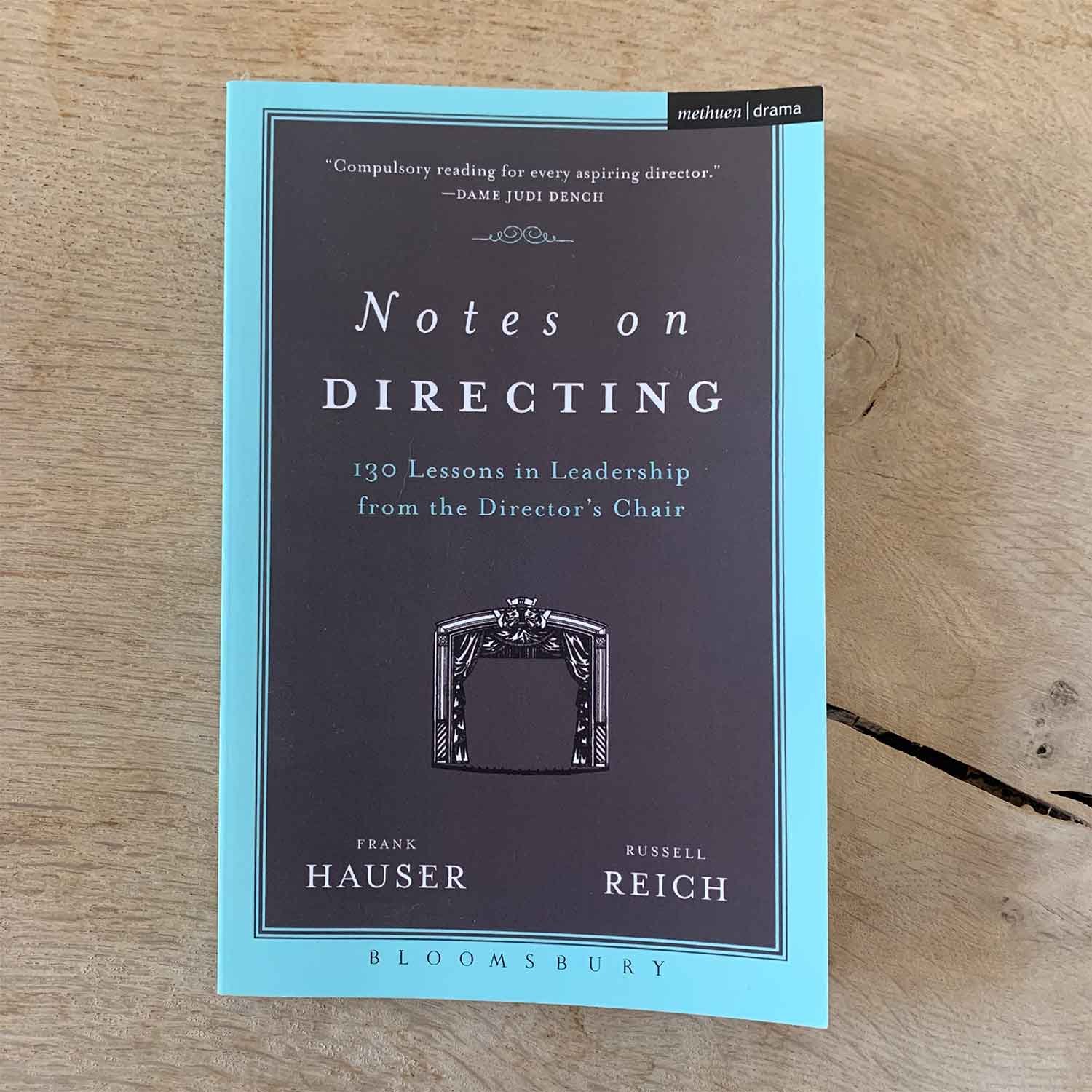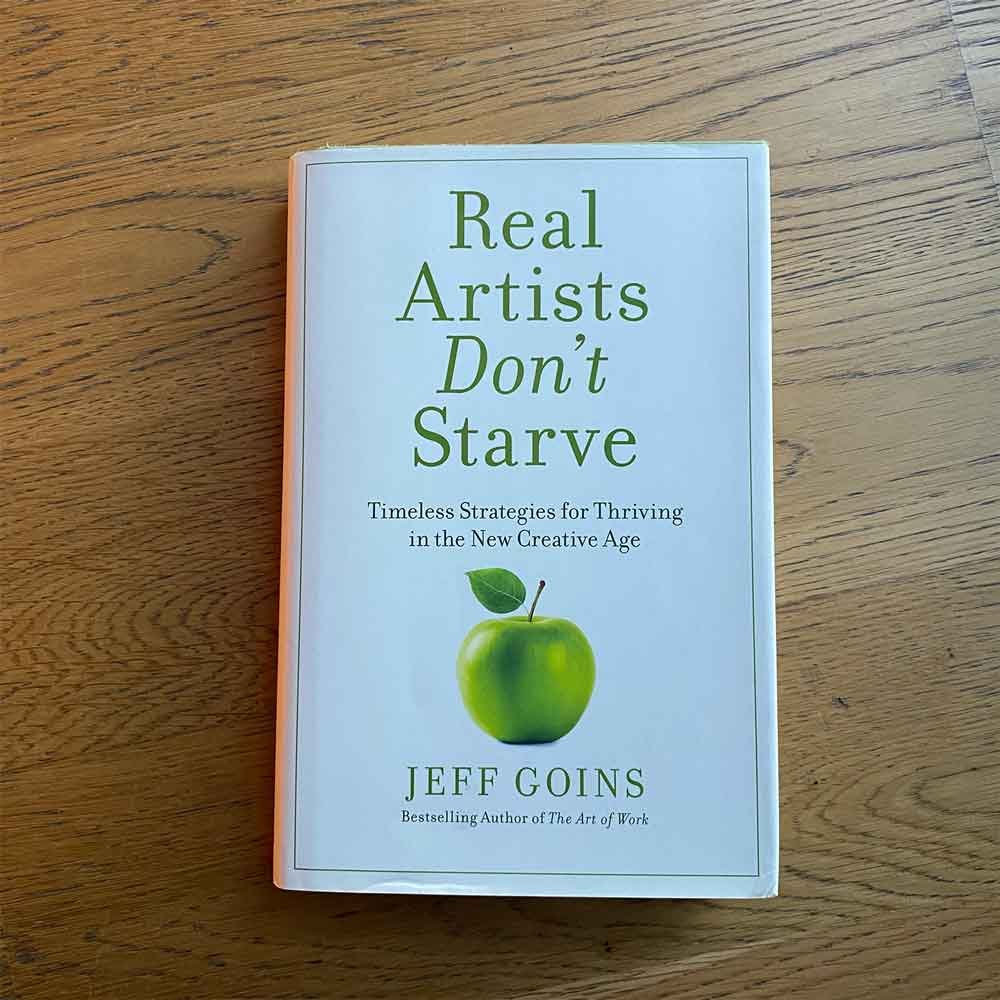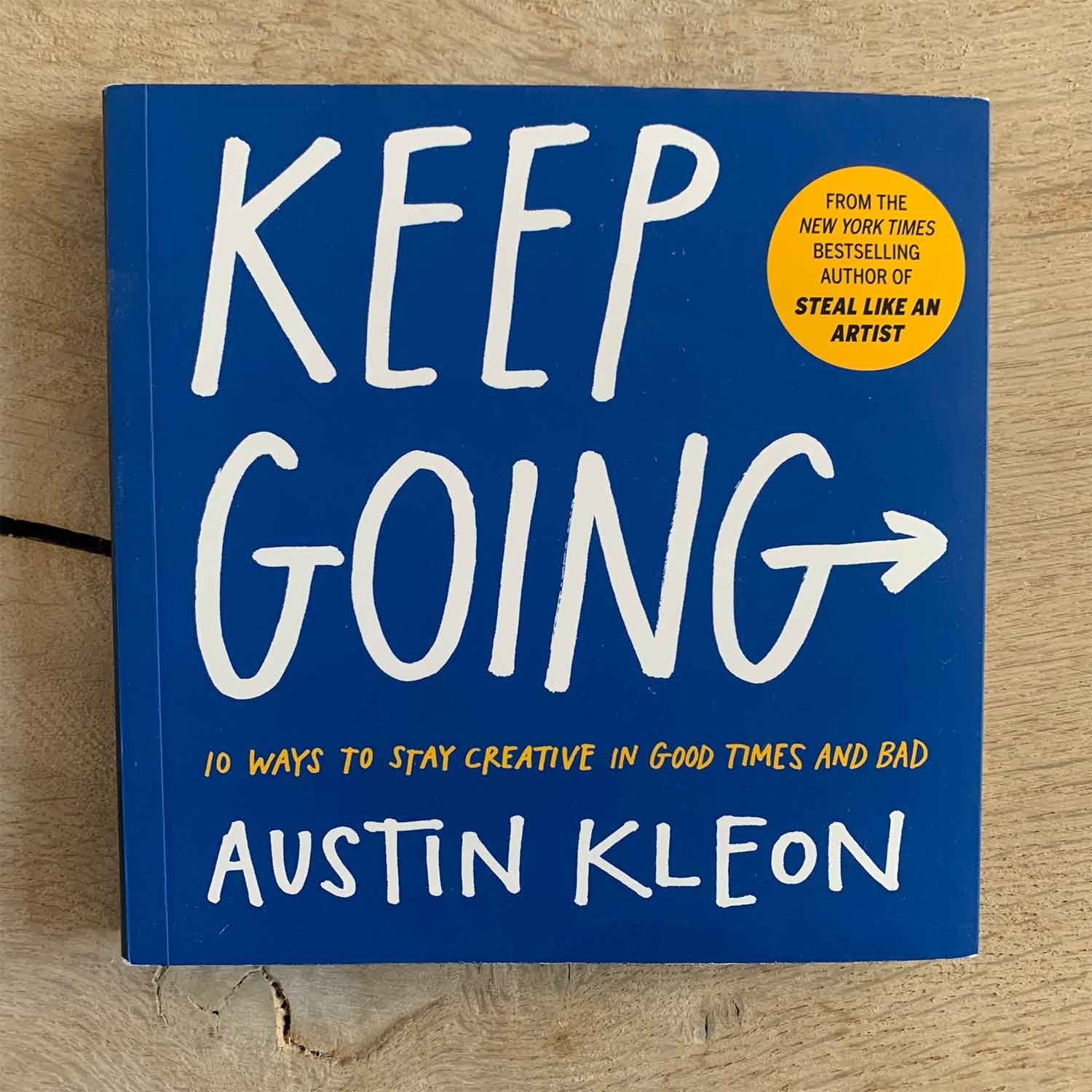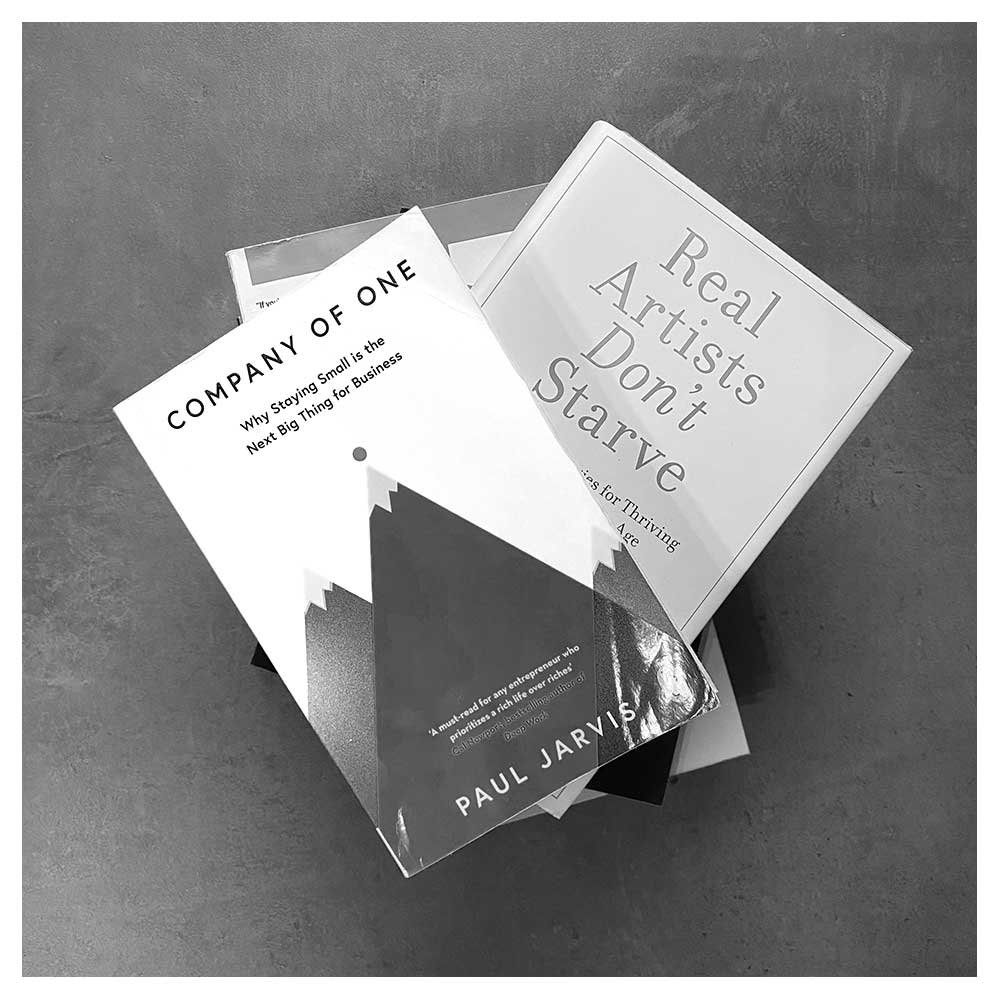The 16 Best Filmmaking Books Every Filmmaker Should Read
In this article, I wanted to share sixteen books I believe every filmmaker should read at least once throughout their career because they will give new perspectives on the film business and the craft and help to elevate your filmmaker’s skill set.
Although some are a bit outdated, I think they still have a huge value for anyone working in whatever content creation genre.
Table of contents:
1. Rebel without a Crew: Or How a 23-Year-Old Filmmaker With $7,000 Became a Hollywood Player
In many situations, bringing ideas to life with a camera means hustling.
Especially at the beginning of a filmmaker’s career, while they're still developing their skills and trying to get their hands on the projects they want, it's all about turning every penny twice.
Talking about hustling as an independent filmmaker, I guess there is no other filmmaking book on the market that tells such an insane story as 'Rebel Without a Crew: Or How a 23-Year-Old Filmmaker With $7,000 Became a Hollywood Player.'
The filmmaking book is written by Robert Rodriquez (director of Sin City, Machete, Spy Kids), who kept a journal when he decided to turn his summer holiday into a quest for directing, filming, editing, and producing his first feature film ‘El Mariachi.’
To get his $7,000 indie film production budget, Robert Rodriguez sold his body to drug testing experiments. He allowed scientists to lock him up in a drug testing facility so he could get into the zone of writing the film's script. Absolutely crazy!
I won't spoil too much about the book's content. Still, in very detailed chapters, Robert Rodriguez gives a behind-the-scenes look at the wild ride of visualizing his ambitious action movie script with minimal resources.
Eventually, he screened his indie film at prominent film festivals worldwide, landed his El Mariachi feature film on the desks of Hollywood's most prominent players like Steven Spielberg, and kickstarted his career in the Mekka of filmmaking, Hollywood.
In my opinion, rebel without a crew is obligatory reading material for every hustling independent filmmaker out there!
2. You're Gonna Need a Bigger Story: The 21st Century Survival Guide To Not Just Telling Stories, But Building Super Stories
Suppose you dream of writing feature film scripts for independent films and selling them to a big film studio in Hollywood. In that case, you have to realize that things work slightly differently from when guys like Quentin Tarantino and Christopher Nolan had their breakthroughs.
In today's world of making movies, everybody has access to the best filmmaking tools and the ability to showcase their work via social media platforms. It means that there is so much more filmmaking competition trying to get eyeballs on their work.
Suppose you want to get yourself and your project noticed. In that case, you have to take a different, 21st-century approach, and that's where 'You're Gonna Need a Bigger Story: The 21st Century Survival Guide To Not Just Telling Stories, But Building Super Stories' by Houston Howard can help!
In short, I fucking loved this filmmaking book! I thought this goldmine of knowledge was so damn good with such a revelating perspective on selling ideas to potential investors I dedicated an entire article to my reading experience!
3. How Not To Make A Short Film: Secrets From A Sundance Programmer
For many independent filmmakers who want to break into the feature film or TV series market, creating short films is their stepstone to developing their filmmaking skills and portfolio and showcasing their artistic abilities.
If this is the path you want to take in making movies, I highly recommend reading 'How Not To Make A Short Film: Secrets From A Sundance Programmer' by Roberta Marie Munroe.
It discusses some of aspiring filmmakers' most commonly made career and creative mistakes. Although the book is a bit dated (2009) regarding some subjects like submitting your project in DVD format to film festivals, I still believe it highlights lots of great advice on picking the right topics for your film and how not to bring those to life in cliché ways.
I picked up lots of advice from this book before making my short film production 'Ius Talionis.'
4. Directing Actors: Creating Memorable Performances for Film and Television
Working with actors is one of the most challenging aspects of directing films. I know firsthand that working with actors can be an absolute brain cracker, especially if you don't know how to communicate your vision with them.
At the beginning of our independent filmmaker careers, we all mistakenly give the people in front of the camera directions like 'be angrier, or be happier.'
But how does this translate into a performance? How does the actor know how much anger is enough on the anger scale? What I consider 'angrier' and how to play can differ from what you think to be angrier.
If you want to know how to communicate to actors correctly to capture the performance you are looking for, 'Directing Actors: Creating Memorable Performances for Film and Television' by Judith Weston is your holy grail!
5. Show Your Work!: 10 Ways to Share Your Creativity and Get Discovered
With filmmaking tools being so easily accessible to everyone these days, the barrier to working in this industry has never been lower. The downside of this development is that you'll have to deal with many more competitors when it comes to getting new jobs.
If you want to beat that competition in your quest for getting new work, I believe you have to become better at marketing yourself and your business.
To do that, building a website to display your work and running social media accounts is not enough. It's just the first step in the marketing process.
Next, you'll need people to visit your website, but hoping people will find your website via your flashy social media posts is unrealistic. There is too much filmmaking competition out there doing the same thing.
I believe you also don't have to schedule dozens of cold calls, send lots of emails, and go to endless meetings and network events. There is another (cheaper) way to stay on top of mind and find new clients by building an online presence using your website.
By constantly sharing your creative journey, knowledge, and discoveries on your website, filled with potential value for your audience, you can position yourself as an expert in your field and make it possible for future clients and collaborators to come to you instead of the other way around.
I know this might sound a bit vague, perhaps even unrealistic! So to help you better understand how this all works, I highly recommend reading the book 'Show Your Work!: 10 Ways to Share Your Creativity and Get Discovered' by Austin Kleon.
Reading this book was an absolute eye-opener for me in getting new business, and perhaps it will be an eye-opener for you as well!
6. Film Directing: Shot by Shot - Visualizing from Concept to Screen
I didn’t go to film school and don’t have a film school degree. Most of my knowledge and skills come from watching many YouTube tutorials, making movies, learning from countless mistakes, and reading many books.
When I started focusing on directing, I decided to read whatever book I could get my hands on regarding film directing. I wanted to understand all the theoretical aspects of the filmmaking process.
If you also want to know what it takes to make movies and the knowledge required to guide a crew from start to finish in visualizing ideas, I highly recommend reading ‘Film Directing: Shot by Shot - Visualizing from Concept to Screen’ by Steve D. Katz.
It’s essentially a simple, straightforward, all-in-one guide that teaches you all the basics of directing a film production, no matter the genre.
From the writing process, the post-production, the getting your film at film festivals. Everything is covered in this definitive guide.
7. Shooting for the Mob: (Based on the Incredible True Story)
Besides knowledge-focused books, I also love reading about other filmmakers’ career paths and the challenges they had to overcome during film productions.
I like these kinds of books so much because it helps to show that nothing comes easy and everybody is struggling in some way in this business.
‘Shooting for the Mob’ is one of those jaw-dropping page-turners about movie making! It takes place in the world of the mafia and Hollywood.
It tells the tale of ambitious young independent filmmaker Alex Ferrari, who is asked to direct his first feature film with a 20 million dollar budget.
Together with 'Rebel Without a Crew' it’s one of the craziest life stories I’ve ever read, and it makes you think twice when it comes to starting a career in filmmaking. Highly entertaining, highly recommended!
8. The War of Art: Break Through the Blocks and Win Your Inner Creative Battles
We all struggle to get to where we want to be in life. How we overcome those obstacles on our way to success defines the outcome.
Nonetheless, I believe this small pocket 'bible' called 'The War of Art: Break Through the Blocks and Win Your Inner Creative Battles' by Steven Pressfield helps you find ways to unlock the inner barriers to creativity. It's not just a must-read for film industry people but everyone looking for ways to win their internal wars.
9. In the Blink of an Eye: A Perspective on Film Editing
When you Google the best books about filmmaking and film editing, you’ll see ‘In the Blink of an Eye: A Perspective on Film Editing’ appear in 99% of the search results.
That’s because it was written by one of the most respected thought leaders in the world of film editing and post-production, Walter Murch. With three Oscar wins under his belt, this man is an absolute legend for cutting movies.
In the blink of an eye, he outlines his vision of the craft of film editing and describes the phycological concept of cutting shots when people in the audience subconsciously blink their eyes.
The filmmaking book is more than 20 years old and, therefore, can feel a bit dated here and there in terms of technological approaches.
Still, I highly recommend giving it a try because it might contain a nugget of film editing knowledge gold for you and how you approach cutting your next film project!
10. Steal Like an Artist: 10 Things Nobody Told You About Being Creative
It is believed that famous artist Pablo Picasso once stated, "Good artists copy, great artists steal." It means that good artists will try to replicate something as much as possible.
In contrast, a great artist will select particular elements from another artist's work and incorporate them into their unique mix of influences.
In my opinion, we, the filmmakers, are sometimes so focused on creating something original that we seem to forget that everything in life is a remix.
Everything that exists today is influenced by something from the past. Every person on earth is a remix of their parent's DNA! It's how you combine the different ingredients that ultimately make it yours.
If you want to become a better filmmaker, you must study the works of others, select elements you like, and remix them into your project.
And this book, 'Steal Like an Artist: 10 Things Nobody Told You About Being Creative' by Austin Kleon, teaches you how to do that properly!
11. Cheap Movie Tricks: How To Shoot A Short Film For Under $2,000
If you’re looking for cheap ways to capture your ambitious movie making ideas, this DIY filmmaking bible, 'Cheap Movie Tricks: How To Shoot A Short Film For Under $2,000' by Rickey Bird, is your go-to source!
It’s a how-to guidebook for micro-budget projects packed with images, practical advice, and smart ways to get the results you want without spending lots of money on it.
12. It's Not How Good You Are, It's How Good You Want to Be
'It's Not How Good You Are, It's How Good You Want to Be' by Paul Arden (creative director and advertising guru) is one of those mental refreshers you need to read every once in a while to see things in perspective again.
It’s super easy to read and contains lots of value, awesome quotes, and great imagery that helps to give a unique insight into the world of advertising.
Besides that, Paul offers his wisdom on issues like problem-solving, responding to a brief, communicating, playing your cards right, and learning from many mistakes!
13. Notes on Directing: 130 Lessons in Leadership from the Director's Chair
'Notes on Directing: 130 Lessons in Leadership from the Director's Chair' by Frank Hauser and Russell Reich is one of those little gems for aspiring film directors.
It's more or less 100 pages filled with 130 practical tips & tricks focusing on all the aspects of a film director's job, like understanding the script, casting, rehearsals, communicating with actors, staging a play, and so much more.
If you're looking for a super easy-to-read little book with practical advice from people who have been working in the film industry for most of their life, this one is for you!
14. The Win Without Pitching Manifesto
This book is not so much about the craft of filmmaking but more about the business side of working in the creative industry.
Over the last decade, I've seen so many people starting their own video production companies. Look at a random Instagram page of a person holding a camera, and the chances are that person is the (co-) owner of a video production company creating commercials, documentaries, short films, branded content… You name it.
It's not a strange development, though. Clients expect creators to facilitate every wish in every possible format they put on the table, so everybody starts a video production company. They want to serve everybody and everything so they won't miss out on potential revenue.
To understand why I recommend reading this book, we have to look at this everybody starts their own company's development from a different perspective.
When you encounter a problem in life, you probably want to find the best possible expert to help you solve it. Guess what? It works the same for filmmaking, no matter the genre!
Suppose you can specialize your video production company (or your freelance filmmaking career) in a particular niche market. In that case, it's easier for clients to find you and label you as the best possible expert to help them solve their problems—bringing their ideas visually to life!
'The Win Without Pitching Manifesto' by Blair Enns outlines how you can grow into a position where you no longer have to pitch for projects as a necessity by becoming an authority in your market!
15. Real Artists Don't Starve: Timeless Strategies for Thriving in the New Creative Age
This gem might be the most important book about the creative business you can read on this list.
I believe "Real Artists Don't Starve: Timeless Strategies for Thriving in the New Creative Age" by writer Jeff Goins should be obligatory reading material in film schools and for every person working in the creative industry.
I wish I had encountered this book earlier in life because, in my opinion, it's the fundamental mindset blueprint we all should get at the beginning of pursuing our creative careers.
Please, my creative friends, do yourself and your career a favor and read this book. Your time and energy invested will save you so much time, money, and mental frustration further down the line, and you will want to wish that you had known and applied the strategies laid out in this pearl of wisdom.
16. Keep Going: 10 Ways to Stay Creative in Good Times and Bad
Let's wrap up this list with the third book by Austin Kleon, 'Keep Going: 10 Ways to Stay Creative in Good Times and Bad.' The cool thing about reading Austin's three books combined is that they are all written in the same style (full of cool visuals and super easy to read) and beautifully complement each other.
It's one of those 'realization' books that help you understand that there is not just one universal way of getting where you want to be.
Everybody is simply doing it on their terms and conditions and experiences many mental struggles along the way.
To help you overcome those internal struggles, this little book is stuffed with unique Jedi mind tricks. It's packed with inspirational quotes, images, and practical advice to help you discover new ways to make creativity flow again!
Final Thoughts On the best filmmaking books
Finally, if you are serious about a filmmaking career, these books are essential reading. By expanding your knowledge on the subject, you will be better equipped to make informed decisions and create engaging and memorable films.
These books cover various topics, from screenwriting to directing, so there is something for everyone. Give them a read and see how they can help you take your filmmaking skills to the next level.
Frequently Asked Questions About The Best Filmmaking Books (FAQs)
What are some of the best filmmaking books for beginners?
Some of the best filmmaking books for beginners include "The Filmmaker's Handbook" by Steven Ascher and Edward Pincus, "Making Movies" by Sidney Lumet, and "Rebel Without a Crew" by Robert Rodriguez.
What are some good books for learning about screenwriting?
Some good books for learning about screenwriting include "The Anatomy of Story" by John Truby, "Save the Cat!" by Blake Snyder, and "Story" by Robert McKee.
Are there any books that specifically cover directing?
Yes, there are several excellent books on directing, including "Directing Actors" by Judith Weston, "On Directing Film" by David Mamet, and "Notes on Directing" by Frank Hauser and Russell Reich.
What are some good books for learning about cinematography?
Some good books for learning about cinematography include "The Five C's of Cinematography" by Joseph V. Mascelli, "Cinematography" by Kris Malkiewicz and M. David Mullen, and "Light Science and Magic" by Fil Hunter, Steven Biver, and Paul Fuqua.
Are there any books that cover the business side of filmmaking?
Yes, several great books cover the business side of filmmaking, including "The Business of Film" by Mark Litwak, "Hollywood Dealmaking" by Dina Appleton and Daniel Yankelevits, and "The Producer's Business Handbook" by John J. Lee Jr.
Are there any books that cover film history?
Yes, several great books cover film history, including "The Story of Film" by Mark Cousins, "Easy Riders, Raging Bulls" by Peter Biskind, and "A Short History of Film" by Wheeler Winston Dixon and Gwendolyn Audrey Foster.
What are some good books for learning about documentary filmmaking?
Some good books for learning about documentary filmmaking include "Directing the Documentary" by Michael Rabiger, "The Art of the Documentary" by Megan Cunningham, and "Cinéma Vérité" by Peter Wintonick and Michael Dorland.
Are there any books that cover the technical aspects of filmmaking?
Yes, several great books cover the technical aspects of filmmaking, including "Film Directing Shot by Shot" by Steven D. Katz, "Master Shots" by Christopher Kenworthy, and "The Grip Book" by Michael G. Uva.
Are there any books that cover the creative aspects of filmmaking?
Yes, several great books cover the creative aspects of filmmaking, including "In the Blink of an Eye" by Walter Murch, "Making Movies" by Sidney Lumet, and "The Art of Film Acting" by Jeremiah Comey.
Where can I find these filmmaking books?
You can find these filmmaking books at your local bookstore, online book retailers like Amazon, or local library.
